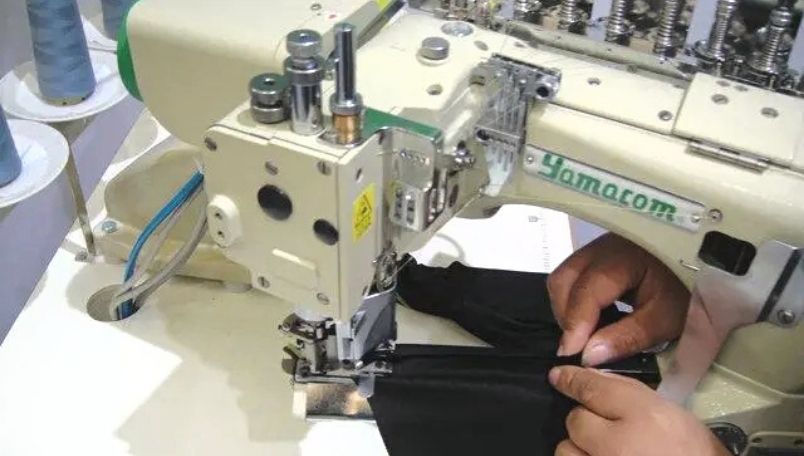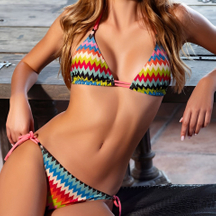Content Menu
● 1. Quality of Materials
● 2. Technical Expertise
● 3. Customization Options
● 4. Quality Control Processes
● 5. Production Capacity and Scalability
● 6. Ethical Practices
● 7. Strong Communication Skills
● 8. Reputation and Experience
● 9. Innovation in Design
● 10. Customer Support Services
● Conclusion
● Frequently Asked Questions
>> 1. What materials are best for swimwear?
>> 2. How can I ensure my swimwear manufacturer is ethical?
>> 3. What customization options should I look for in a swimwear manufacturer?
>> 4. How important is quality control in swimwear manufacturing?
>> 5. Can I scale my production with my swimwear manufacturer?
● Citations:
Swimwear is not just a functional garment; it represents a blend of fashion, comfort, and performance. As the demand for high-quality swimwear increases, so does the need for manufacturers who can deliver exceptional products. This article explores the key qualities that define the best swimwear manufacturers, ensuring they meet the diverse needs of consumers and brands alike.

1. Quality of Materials
The foundation of any great swimwear lies in the materials used. The best swimwear manufacturers prioritize:
- Durability: Fabrics must withstand chlorine, saltwater, and sun exposure without fading or losing shape. Common materials include nylon, spandex (lycra), and polyester. High-quality swimwear often incorporates blends of these materials to enhance durability while maintaining flexibility.
- Comfort: The fabric should feel good against the skin, allowing for ease of movement. This includes moisture-wicking properties and breathability. Manufacturers often use soft-touch finishes and seamless construction techniques to enhance comfort.
- Sustainability: Increasingly, manufacturers are opting for eco-friendly materials like recycled nylon (ECONYL) and organic fibers, appealing to environmentally conscious consumers. Sustainable practices not only help protect the environment but also resonate with a growing demographic that prioritizes ethical consumption.
2. Technical Expertise
Swimwear manufacturing is a specialized field that requires technical know-how in several areas:
- Pattern Making: Skilled pattern makers create designs that accommodate various body shapes and sizes, ensuring a flattering fit. Advanced digital tools are now used to create precise patterns that can be easily adjusted for different styles.
- Sewing Techniques: Advanced sewing methods such as flatlock stitching are essential to prevent chafing and enhance durability. Manufacturers often invest in specialized machinery that allows for these techniques to be executed flawlessly.
- Innovative Production Techniques: Some manufacturers utilize 3D design software and digital printing to create unique designs quickly and efficiently, reducing waste and time in production. This technology enables rapid prototyping, allowing brands to test designs before full-scale production.

3. Customization Options
The best swimwear manufacturers offer extensive customization capabilities:
- Design Flexibility: They allow brands to create unique designs tailored to their target market's preferences. This includes options for custom prints, colors, and styles that reflect current fashion trends.
- Size Range: Offering a wide range of sizes, including plus sizes, ensures inclusivity and caters to diverse body types. The best manufacturers understand the importance of fit across different demographics and provide solutions accordingly.
- Private Labeling: Many manufacturers provide private label options, allowing brands to build their identity while maintaining high-quality production standards. This service often includes assistance with branding elements such as logos and packaging design.
4. Quality Control Processes
Quality assurance is vital in swimwear manufacturing:
- Rigorous Testing: Manufacturers should conduct extensive testing on fabrics for durability against chlorine, saltwater, and UV rays. This may include lab tests that simulate real-world conditions to ensure longevity.
- Inspection Protocols: Regular inspections during production help catch defects early, ensuring only high-quality products reach consumers. A robust quality control team is essential for maintaining standards throughout the manufacturing process.
- Feedback Mechanisms: A good manufacturer will work closely with clients to address any quality concerns and make necessary adjustments. Establishing open lines of communication helps foster a collaborative relationship focused on continuous improvement.

5. Production Capacity and Scalability
Understanding a manufacturer's production capabilities is crucial for brands looking to grow:
- Lead Times: Efficient manufacturers can deliver products within reasonable timeframes without compromising quality. They often have streamlined processes in place that enable quick turnaround times from design to delivery.
- Scalability: They should be able to scale production up or down based on demand fluctuations without sacrificing quality or service. This flexibility is particularly important for brands launching seasonal collections or limited-edition lines.
6. Ethical Practices
In today's market, ethical manufacturing practices are more important than ever:
- Fair Labor Practices: The best manufacturers ensure fair wages and safe working conditions for their employees. Transparency in labor practices builds trust with clients and consumers alike.
- Sustainable Practices: Commitment to eco-friendly production methods helps reduce environmental impact and appeals to conscious consumers. This includes minimizing waste through efficient cutting techniques and recycling leftover materials whenever possible.

7. Strong Communication Skills
Effective communication between manufacturers and brands is essential for successful partnerships:
- Transparency: Manufacturers should provide clear information regarding processes, timelines, and costs. This transparency helps set realistic expectations and fosters trust between parties.
- Responsiveness: Quick responses to inquiries can significantly enhance the collaboration experience between brands and manufacturers. A proactive approach in addressing concerns can lead to smoother operations overall.
8. Reputation and Experience
A manufacturer's reputation speaks volumes about their capabilities:
- Industry Experience: Established manufacturers often have refined processes that ensure higher quality outputs. Their experience allows them to anticipate challenges and implement effective solutions quickly.
- Client Testimonials: Positive feedback from previous clients can help gauge reliability and quality assurance. Brands should seek out reviews or case studies that highlight successful collaborations with potential manufacturers.

9. Innovation in Design
The best swimwear manufacturers stay ahead of trends by embracing innovation:
- Trend Forecasting: Successful manufacturers employ trend analysts who monitor fashion trends globally, ensuring their designs remain relevant and appealing to consumers.
- Technology Integration: Incorporating technology into design processes allows for more creative freedom while maintaining practicality in production. For instance, some manufacturers use augmented reality (AR) tools that enable clients to visualize designs before they are produced.
10. Customer Support Services
Exceptional customer support is a hallmark of top-tier swimwear manufacturers:
- Dedicated Account Managers: Providing clients with dedicated account managers ensures personalized service tailored to specific needs throughout the production process.
- After-Sales Support: Good manufacturers offer after-sales support including handling returns or addressing any post-purchase issues efficiently.
Conclusion
Choosing the right swimwear manufacturer involves evaluating several critical factors that contribute to the overall quality of the final product. From material selection to ethical practices, understanding these key qualities can help brands find partners that align with their vision and values. As consumer preferences continue to evolve towards sustainability and inclusivity, manufacturers who adapt will undoubtedly lead the market in providing the best swimwear options available.

Frequently Asked Questions
1. What materials are best for swimwear?
- High-quality swimwear typically uses nylon, spandex (lycra), or polyester due to their durability, elasticity, and comfort properties.
2. How can I ensure my swimwear manufacturer is ethical?
- Look for certifications related to fair labor practices and sustainability initiatives that demonstrate a commitment to ethical manufacturing processes.
3. What customization options should I look for in a swimwear manufacturer?
- Seek manufacturers that offer design flexibility, size inclusivity (including plus sizes), and private labeling services for brand identity development.
4. How important is quality control in swimwear manufacturing?
- Quality control is crucial as it ensures durability and performance; rigorous testing helps maintain high standards throughout production.
5. Can I scale my production with my swimwear manufacturer?
- Choose manufacturers with proven scalability capabilities who can adjust production levels based on your business needs without compromising quality.
Citations:
[1] https://appareify.com/hub/swimwear/best-swimwear-manufacturers
[2] https://baliswim.com/finding-the-right-swimwear-manufacturer-for-your-brand/
[3] https://www.swimwearmanufacturers.co.uk/post/swimwear-manufacturers-the-secret-behind-high-quality-swimwear
[4] https://deepwear.info/blog/swimwear-manufacturing/
[5] https://swimwearbali.com
[6] https://baliswim.com/photo-video-production-strategies-your-swimwear-brands/
[7] https://www.leftyproductionco.com/post/2017-2-17-everything-you-need-to-know-about-swimwear-manufacturing
[8] https://www.swimwearmanufacturers.co.uk/post/swimwear-manufacturing-everything-you-need-to-know
[9] https://brazilian-bikinis.net/exposing-the-best-swimwear-manufacturers/
[10] https://www.16thjulyexports.com/post/swimwear-manufacturers-a-complete-guide-to-choosing-the-best-for-your-brand
[11] https://appareify.com/hub/swimwear/best-bali-swimwear-manufacturers
[12] https://www.youtube.com/watch?v=bZFOF11qtVc
[13] https://www.swimwearmanufacturers.co.uk/post/the-swimwear-manufacturing-process-a-behind-the-scenes-look





































































